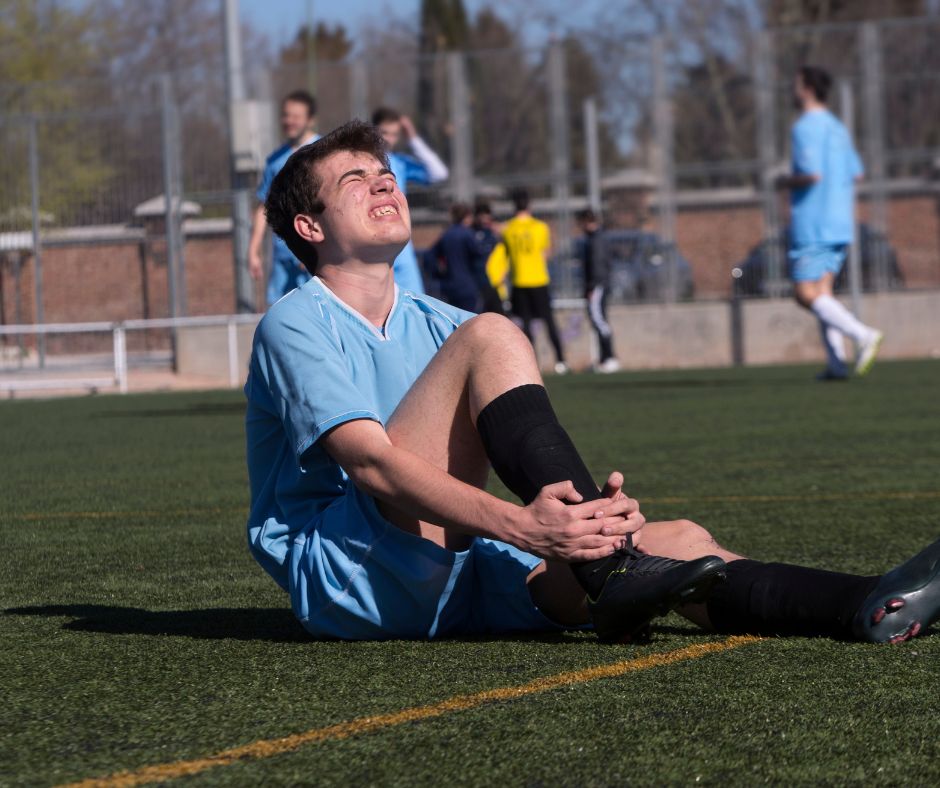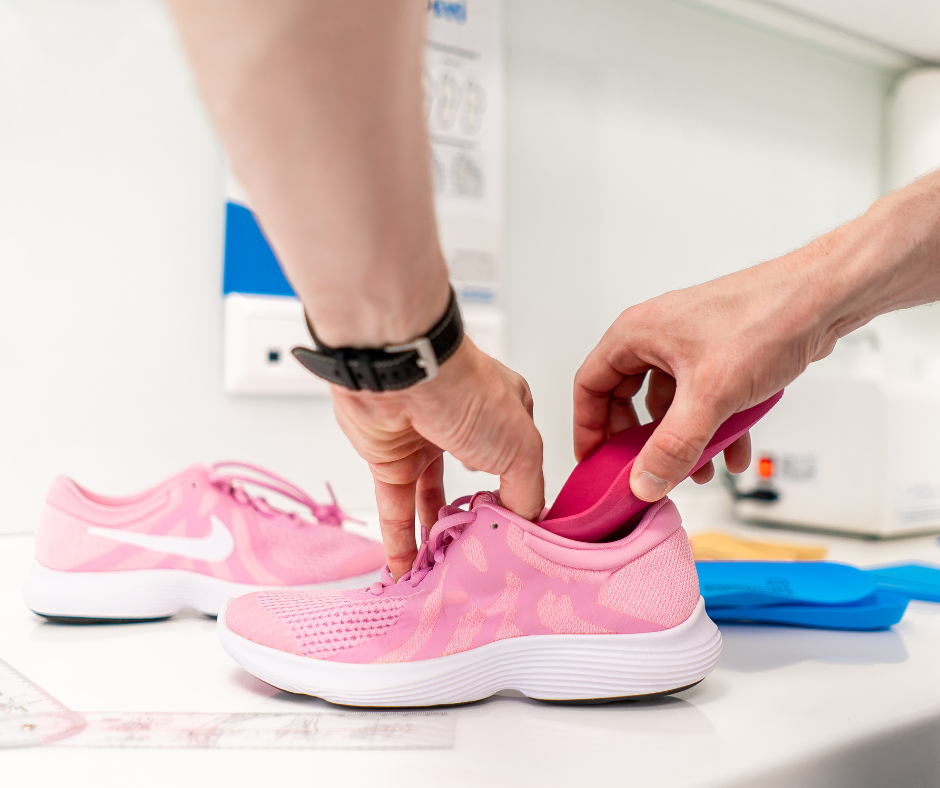Injury in sport affects people of all ages and abilities. Whether playing Rugby, Gaelic football, Hurling, Tennis, Golf or another sport, sports injuries can include;
1. Swelling and bruising
2. Ligament sprains and tears
3. Muscle pulls and tears
4. Tendon overloading
5. Injuries to the joint
6. Overuse injuries
7. Stress fractures

Injuries in sport can be categorised into different sections
1. Traumatic injuries
Such as a direct hit to the leg may cause a fracture or dead leg which may cause bleeding and muscle inflammation.
Dislocations may occur when a rugby player scores a try with an outstretched arm.
Indirect traumas such as an awkward landing with a hyperextended knee can lead to an anterior cruciate ligament (ACL) rupture.
A muscle tear in the hamstring is common in athletic sprinters.
2. Injuries through overuse
Repeated movements like running can lead to muscle strains and tendon overloading may lead to Achilles tendinopathy. Overuse injuries are often common in repeated throwing sports like baseball, shot putt, javelin, or discus.
Tennis and golf have a lot of gripping overuse injuries. Other sports like soccer, gaelic football, hurling and rugby see a lot of rotary action which results in groin or hip pain.
3. Biomechanical injuries
People have different body types and abilities which can respond effectively or not so well to the demands of their sport.
During a dynamic activity the foot is the propeller. Incorrect foot position may cause undue stress on different parts of the leg or body.
Sometimes more appropriate footwear or orthotics may help alleviate these symptoms.

Physiotherapy can help
A Chartered Sports Physiotherapist has a specialist knowledge of sports injuries, ensuring the best management of your injury, the timeline to return to sport and program to help you with injury prevention.
An initial physiotherapy assessment will include a detailed analysis of your injury and how it happened, along with a road map on how you can get back to your sport.
Treatment of your injury may include:
|
1. Education and advice on your injury and how to manage it 2.Hands on treatment such as sports massage or joint mobilisations 3.Taping, bandaging and advice on suitable supports if needed 4.Shockwave therapy for tendons and soft tissue 5.Biomechanical assessment and prescription of orthotics where required 6.Home exercise programs that may include strength, balance, speed, agility, quickness, flexibility or power based programs 7.Programs on returning to your sport 8.Programs on injury prevention and performance enhancement 9.Programs for strength and conditioning |
|
If appropriate we will contact your doctor or consultant where needed and help youon your path to recovery. |
Remember?
If you would like to book an appointment or speak to one of our Chartered Physiotherapists that specialise in sports injuries call us on 021-4633455 or book online below.
We hope you enjoyed this blog by Mark Canning, Chartered Sports Physiotherapist BSc Physiotherapy, PGDip in Sports Physiotherapy.
This blog is provided for information purposes only. The content is not intended to be a substitute for professional medical advice, diagnosis or treatment. Seek the advice of your doctor with any queries regarding a medical condition.
